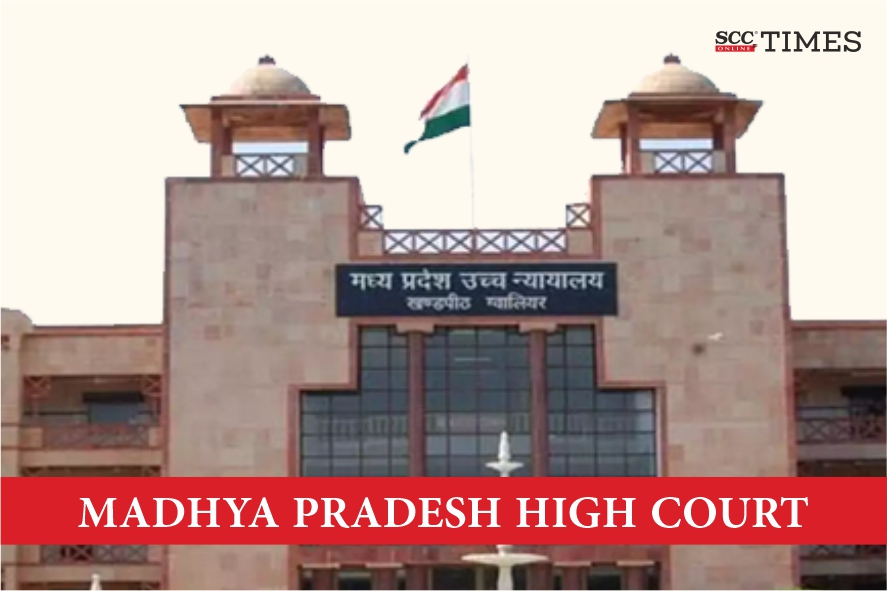Madhya Pradesh High Court: In a criminal appeal against the conviction and death sentence of by the Special Judge (POCSO), Khandwa, for the rape and attempted murder of a four-year-old girl under various sections of IPC and POCSO Act, a Division Bench of Vivek Agarwal and Devnarayan Mishra,* JJ., upheld the conviction for grave offences against a minor, but declined to confirm the death sentence, emphasising that the case did not meet the “rarest of rare” threshold necessary for imposing capital punishment.
Factual Matrix
In the instant matter, on the night of 30-10-2022/31-10-2022, a four-year-old girl, visiting her relatives in Khandwa, Madhya Pradesh, went missing while sleeping inside a hut with her cousin. The accused, a worker at a nearby dhaba, had requested a cot to sleep near the hut that night and was later found missing in the morning. Suspicion arose, and upon interrogation, he led the police to a mango orchard where the victim was discovered unconscious and injured.
The minor had sustained severe sexual injuries and was later referred to Bombay Hospital, Indore. A large volume of forensic evidence, including DNA samples, linked the accused to the crime. The trial court, Special Judge under the POCSO Act, convicted him and awarded capital punishment under Section 6 of the POCSO Act, along with other sentences under Sections 307, 363, 450, and 201 of the IPC.
The matter was referred to the High Court for confirmation of death sentence. The accused preferred the present criminal appeal challenging the conviction and sentence.
Parties’ Contentions
The appellant argued that the name of the accused was not mentioned in the FIR initially, there is no eyewitness to the abduction or the act, identification of the accused was not made by the victim. It was argued that the DNA evidence, being circumstantial, is not sufficient on its own. It was pointed out that the accused is 20 years old, illiterate, from a Scheduled Tribe background, with no prior criminal history. It was further argued that the trial court erred in concluding that the offence falls under the “rarest of rare” category warranting the death penalty.
However, the State contended that the accused was found with DNA evidence conclusively matching that found on the victim’s frock, undergarments, and at the crime scene. It was pointed out the victim was brutally raped and left in an unconscious state, believing she had died. It was contended that the prosecution has established the chain of events with forensic and circumstantial evidence beyond reasonable doubt. The State further cited precedents where death penalty was upheld in cases of rape of the child and attempted murder.
Court’s Observation
The Court noted that the victim was aged four years and three months, as corroborated by her birth certificate; DNA profiles matched between accused and materials recovered from the crime scene and victim’s clothes; the place of crime and recovery of the victim were disclosed by the accused himself and the medical reports confirmed brutal sexual assault, with internal injuries and oxygen deprivation-induced brain swelling.
While noting the heinous nature of the crime, the Court held that mitigating circumstances, particularly the youth of the appellant, lack of prior criminal history, his tribal and impoverished background, that he is working in a roadside Dhaba, and abandoned by his family at a young age, placed the present case outside the “rarest of rare” category. The Court further emphasised that there was no conclusive medical evidence that the victim had suffered permanent disability or would be unable to live a normal life in future.
Relying on Bachan Singh v. State of Punjab, (1980) 2 SCC 684; Machhi Singh v. State of Punjab, (1983) 3 SCC 470; Santosh Bariyar v. State of Maharashtra, (2009) 6 SCC 498; the Court reiterated that “life imprisonment is the rule and death sentence is an exception.”
The Court referred to Bhaggi v. State of M.P., (2024) 5 SCC 782, and reiterated the distinction between acts that are “barbaric” and those that are both “barbaric and brutal” and held that the present case fell in the former category. The Court found the accused’s actions to be “barbaric” but not “brutal” in the legal sense that would merit the death penalty.
“In that light, the act of the appellant could not be said to be ‘brutal’ though ‘barbaric’.”
Court’s Decision
In view of the above-mentioned reasoning, the Court held that the case, though deeply tragic and disturbing, did not fall under the category of “rarest of rare” for warranting the death penalty.
The Court upheld the conviction of the appellant under Sections 363, 450, 307, 201 IPC and Section 6 of the POCSO Act. However, the Court modified the sentence of death penalty under Section 6 of the POCSO Act to rigorous imprisonment for 25 years with a fine of ₹10,000/-, and in default, further rigorous imprisonment for one year without remission.
[Rajaram v. State of M.P., 2025 SCC OnLine MP 4416, Decided on 19-06-2025]
*Judgment by Justice Devnarayan Mishra
Advocates who appeared in this case :
Shri Samar Singh Rajpoot, Counsel for the Appellant
Shri Yash Soni, Deputy Advocate General, Counsel for the Respondent/State


